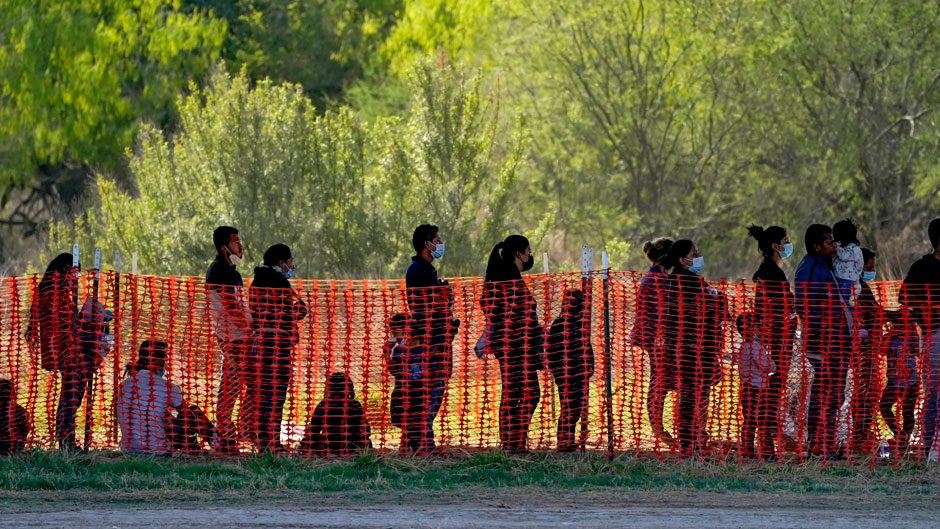The growing number of immigrants arriving at the southern border of the United States, which includes many unaccompanied minors, is creating a problem for the Biden administration as it tries to find more detention facilities and staff members to deal with the flow of new arrivals.
Almost 100,000 immigrants arrived at the U.S. border in February. And the number of unaccompanied minors has climbed to 14,000 from 10,000 in the past month, according to U.S. Customs and Border Protection. The surge is taxing the Border Patrol and overcrowding detention facilities in the border states.
Rebecca Sharpless, professor of law and director of the University of Miami School of Law’s Immigration Clinic, said that it is not a surprise that the number of immigrants has climbed since the Biden-Harris administration has lifted the “remain in Mexico” policy that the Trump administration had instituted before the coronavirus pandemic began.
That policy shuttered the border and required any emigrant to remain in Mexican facilities. Along with that rule, the COVID-19 pandemic also played a role in slowing the number of emigrants that left their countries.
When President Joe Biden took office, in an effort to take a more humanitarian approach, he rescinded the stay-in-Mexico order and vowed that no minors would be separated from their parents. Many emigrants interpreted this move as a sign that the U.S. would be more flexible and accept immigrants who showed up at the border, according to experts.
“We are coming off four years of a very militarized, stringent policy at the border and it is not a surprise that people are trying to cross now,” said Sharpless. “But it is an overstatement to say this is a crisis. History teaches us that these numbers ebb and flow.”
Many of the immigrants coming to the U.S.—mostly Salvadorans, Hondurans, and Guatemalans—are escaping violence in their countries. Others were displaced by Hurricane Eta that swept through Central America in the fall of 2020, killing hundreds and leaving thousands homeless, said Calla Hummel, assistant professor of political science in the College of Arts and Sciences.
“There are a lot of climate refugees in those numbers,” said Hummel. “Many lost their homes and businesses. But they are also fleeing an increase in authoritarianism in their countries in Central America where many governments have used COVID-19 as an excuse to consolidate executive powers.”
A perfect example, she said, is the reign of Nayib Bukele, president of El Salvador, who recently consolidated his power by reshaping his legislature so that there would be no opposition. Critics of Bukele have said he wishes to have a one-man rule.
The rise in the number of children at the border is also because of gang violence in some of those Central American countries.
“Gang violence has been an issue in these countries for many years and one of the reasons why children are coming by themselves is because gang members target adolescents and pre-adolescents,” said Hummel.
Children who arrive at the border are usually detained for 48 hours in rudimentary detention centers that provide very rustic accommodations.
Because of a backlog of cases, many children are presently being held longer than the 72-hour legal limit. After the initial holding period, children are supposed to be moved to more adequate shelters and then released to the custody of a “responsible adult,” Sharpless explained. In many of the cases, children are released to the care of family members who already live in the United States.
In an effort to cure the root of the problems that force many of these emigrants to leave their countries, the Biden administration has pledged $4 billion to Central America to help fight corruption and gang violence and to build good governance. Most of the funds will be given to non-governmental agencies, such as groups that run programs for single mothers and provide training for youth.
“I think it is correct for Biden to look at root causes of problems in that region, but I do not know if these measures will be enough to stem the flow of refugees,” said Sharpless. “These are very entrenched conditions that have built over time.”

